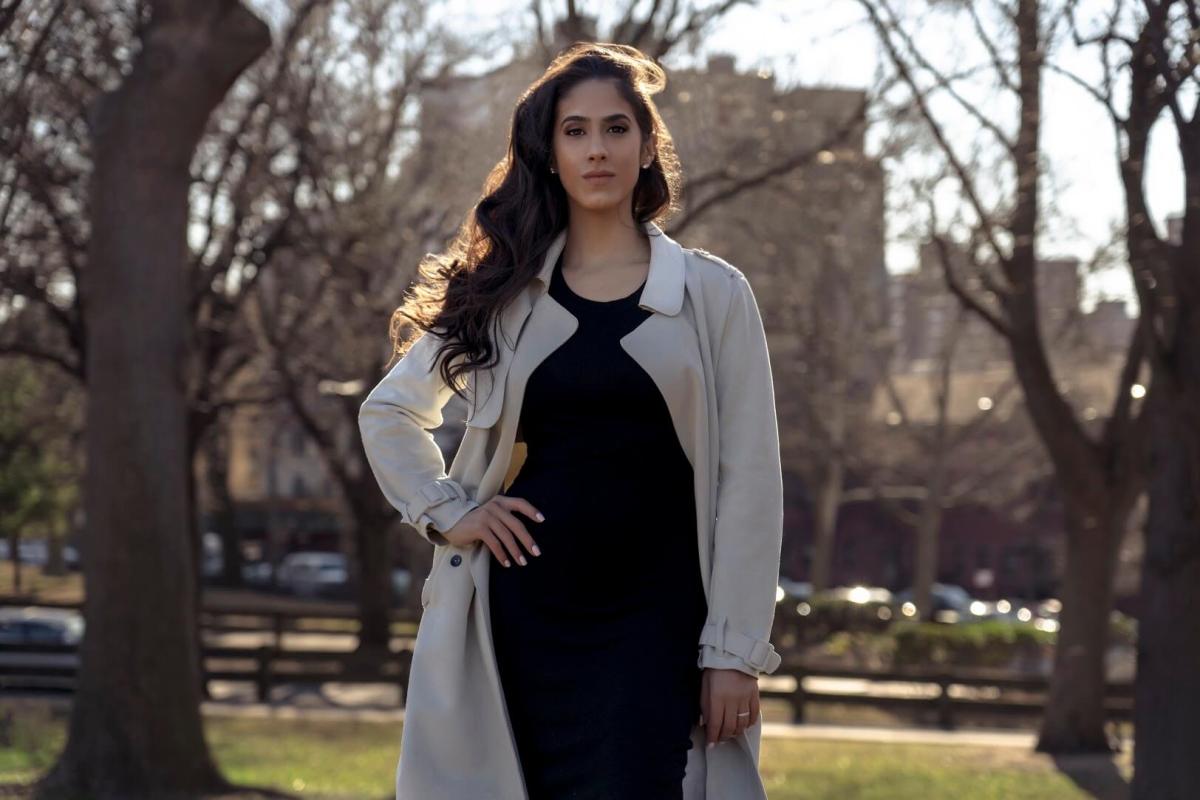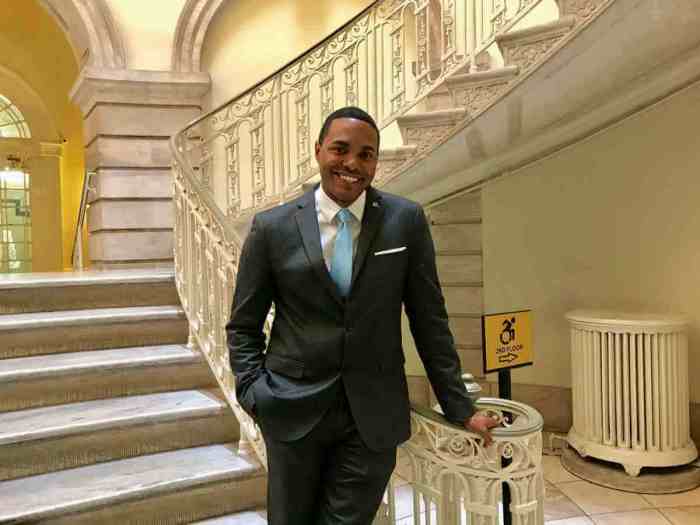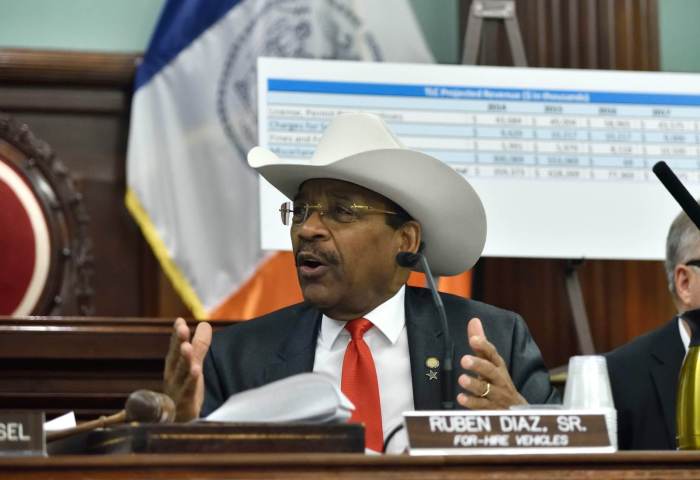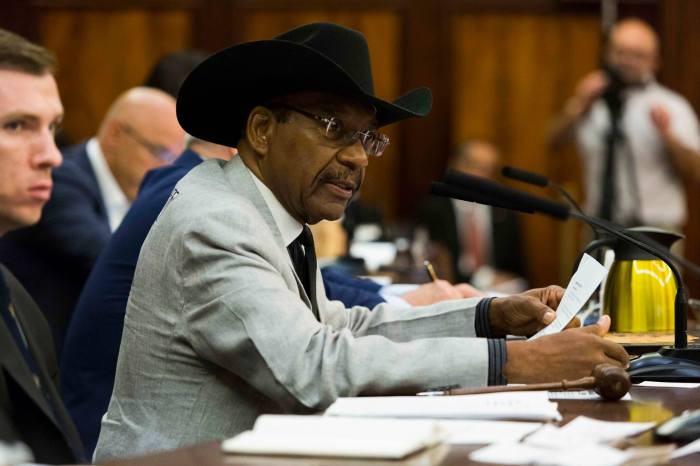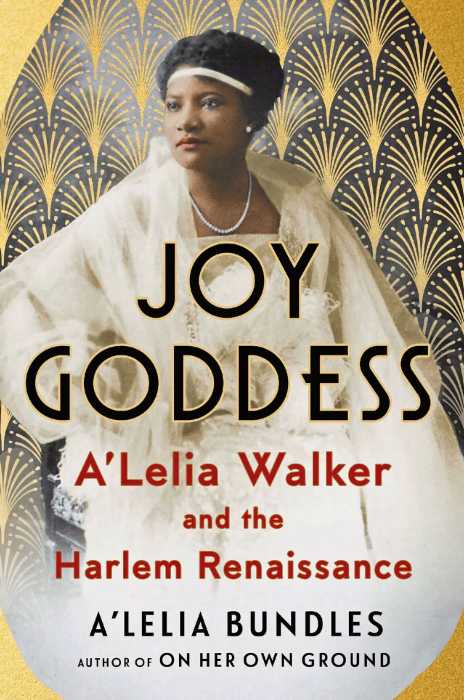Elisa Crespo, an out transgender aide to Bronx Borough President Ruben Diaz, Jr., is aiming to take over for term-limited out gay Councilmember Ritchie Torres — and if successful, she would be the first trans city lawmaker and the first LGBTQ woman elected to office in the Bronx.
But Crespo makes it abundantly clear that she wants voters in the district to focus less on her gender identity and more on what she hopes to achieve as a councilmember.
“I don’t want to be seen as running because I’m transgender,” Crespo told Gay City News. “I just so happen to be a transgender person who is running. I’m more than a trans woman: I’m a woman of color, I’m a working class person, and I’ve been through the public school system and public housing.”
Elisa Crespo brings life, work experience, dissatisfaction with district being overlooked to 2021 race
When that Council seat will actually open up remains a question for at least for a few more days. Should Torres emerge victorious in the Democratic primary in the deep blue 15th Congressional District, he would almost certainly coast to victory in the November general election, at which point there would be a special election for his Council seat.
If Torres loses, Crespo would instead compete in the regular Democratic primary election in June of next year. That Council district, encompassing the neighborhoods of Bedford Park, Fordham, Mount Hope, Bathgate, Belmont, East Tremont, West Farms, Van Nest, and Olinville, is shaping up to be a competitive affair. Other candidates that have declared so far include Oswald Feliz, who is listed on the Bronx Democratic Party’s website as the male state committee member in the 78th Assembly District, and Community Board 7 district manager Ischia Bravo.
Crespo was motivated to run for the soon-to-be-open seat because she became tired of living in a community that she said has been rife with poverty and unemployment and always seems to be the “last in everything.”
“I couldn’t sit idly by and not do anything about it,” she said.
Crespo’s political journey has been influenced in large part by her own experiences and the adversity she has faced along the way. A New York City native who is 29, she has resided in every borough but Staten Island, though she has lived in the Bronx for a decade now. After transitioning at age 15, she started engaging in sex work by the time she was 16, and was diagnosed with HIV when she was 19 years old.
“I had a really rough, challenging, testing adolescence, and sex working landed me in trouble with the law,” Crespo said. “That changed my way of thinking, my politics, and the course of my life in general… because I realized I had to do something and I changed my life for the better.”
Crespo said she stopped engaging in sex work, obtained a college degree, and started building her professional network and seeking out internship opportunities. She went on to intern for Assembly Speaker Carl Heastie and also interned in the City Council before joining Diaz, Jr.’s office.
In her current capacity as education liaison in the borough president’s office, Crespo said much of her work revolves around overseeing efforts to help special needs students requiring special education services.
While she does not want to be defined by her gender identity, Crespo acknowledged the significant meaning of her campaign at a time when the current occupant of the seat she wants, Torres, is the first out LGBTQ person in the Bronx and one of only two queer councilmebers of color, along with Carlos Menchaca of Brooklyn.
“It’s part of my responsibility to take up spaces and try to fulfill that void in a borough that is known as a boys’ club and one that is not particularly open-minded as other boroughs may be,” Crespo said. “It’s important we have a queer candidate in the Bronx to send a message that Bronx is not a homophobic, transphobic borough as people like to paint it out to be.”
Crespo is among those supporting the effort to decriminalize sex work. The issue is regulated on the state level, but the discussion can still be influenced by leaders across the political spectrum. Crespo said she went to Albany to push for the campaign to repeal the ban on Walking While Trans, which is a discriminatory loitering law used to target trans women of color, and she met with Heastie in an effort to gain his explicit support for the legislation.
“He didn’t give me a commitment, but he said he would keep in contact with me and we would talk again, but I never heard from him,” Crespo said. “I think and I hope the Legislature will understand that this issue, too, is going to be part of providing justice for Black and brown bodies, and Black lives cannot matter until Black trans lives matter.”
Crespo pointed to the case of her late friend Layleen Xtravaganza Cubilette-Polanco, a trans woman who died in her restrictive housing cell at Rikers last year after she suffered from seizures caused by epilepsy. Polanco was left alone for over an hour by correction officers who were supposed to be checking on her more frequently. She was behind bars for charges that included sex work-related offenses.
Crespo said she grew up with Polanco, but the two had drifted apart during the time before she died.
“If we decriminalized sex work, Layleen would be alive today,” Crespo said. “Her death was completely preventable and we know their guards were not following protocol.”
Crespo is calling on Bronx District Attorney Darcel Clark — who recently apologized for deadnaming Polanco in a press release announcing that no criminal charges would be made regarding Polanco’s death — to make public the names of the correction officers involved and for them to be fired. She also underscored the need for state lawmakers to pass the HALT Act to ban solitary confinement.
In light of the protests responding to police brutality and racism, Crespo also joined calls to reduce the budget of the NYPD. She described the force as “a standing army” and voiced concerns about the way cops target communities of color in the city. Among other changes, she wants cops to patrol neighborhoods they’re from and she voiced criticism about the way the NYPD has built up a DNA database.
“Overall, I’m not saying we need to completely abolish the police department, but we need to transfer some of that money over to education and healthcare and social services,” Crespo argued.
To that end, Crespo called out Mayor Bill de Blasio for seeking to halt the Unity Works workforce development program for homeless and runaway LGBTQ youth in the wake of COVID-19 budget woes, all while continuing to funnel billions of dollars into the NYPD. She also placed pressure on out gay City Council Speaker Corey Johnson to use his citywide role to vouch for the Unity Works program.
As she continues to build up her campaign, Crespo is confident she can compete with others in the looming race for the 15th Council District. She is not, however, going all the way in making the kind of ironclad campaign finance pledges that have become common among many progressive candidates.
“I’m not taking money from corporate PACs, but in all honesty, I am running in a district where it is not as easy to raise money given the financial circumstances and the people who live here,” Crespo said. “But it’s important to note that nobody is going to be able to buy me or get anything in exchange for contributing to my campaign. I’m not influenced that way.”
Crespo is remaining tight-lipped about who she is supporting in the hotly contested race for the 15th Congressional District, saying on June 10 that she has narrowed her choices down to three candidates.
“I know who I will not be voting for,” Crespo emphasized, “and that’s Ruben Díaz, Sr., for obvious reasons.”
To sign up for the Gay City News email newsletter, visit gaycitynews.com/newsletter.

